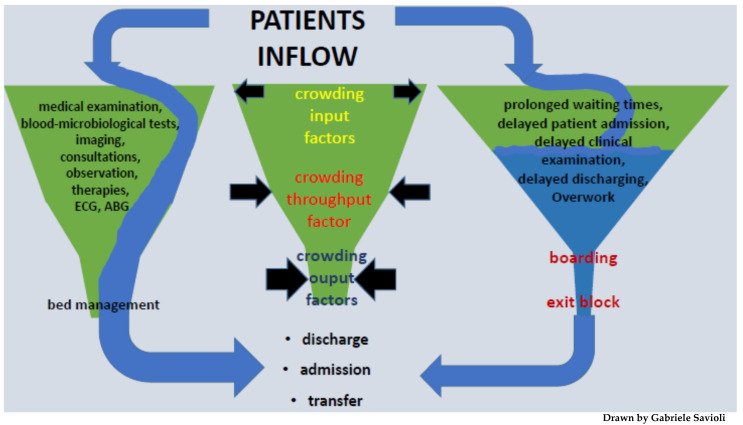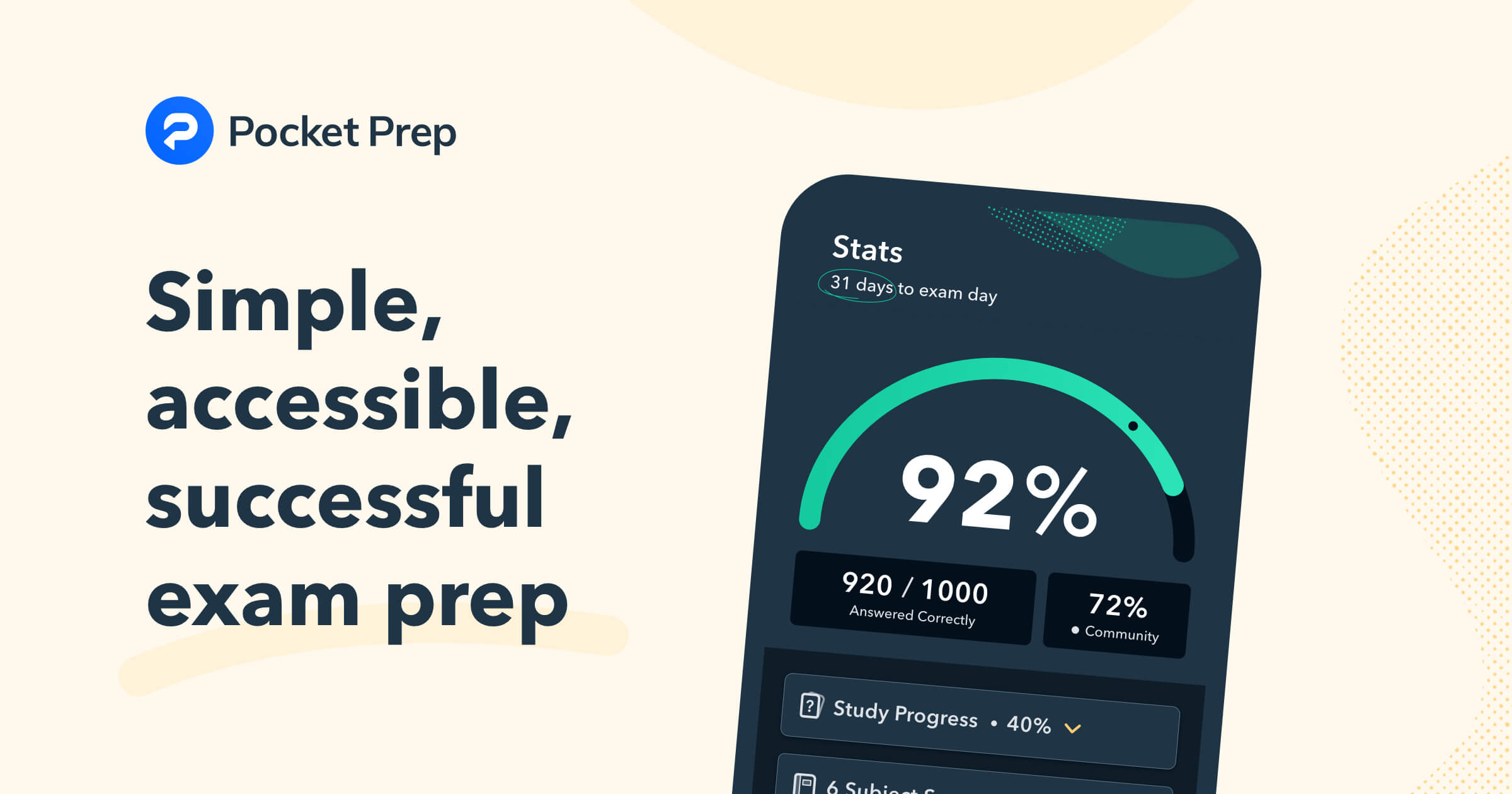Healthcare providers, encompassing clinics, hospitals, and elder care facilities, are undergoing a significant transformation, and artificial intelligence (AI) is at the forefront of this change. Traditionally, healthcare customer service has faced numerous challenges, including long wait times, complex administrative processes, and difficulties in accessing information. Ongoing federal government workforce reductions, shifting US healthcare policy priorities, and an $11 trillion workforce crisis in the care economy are impacting the healthcare landscape. As such, improving patient outcomes and satisfaction is becoming more challenging and complex. AI is emerging as a powerful tool to address these issues, streamline operations, and enhance the overall patient experience. Moreover, healthcare remains a sector where AI adoption is rapidly gaining traction. In 2024, roughly 66% of physicians reported using AI. This number is expected to grow as agentic AI and AGI emerge and healthcare practitioners realize additional opportunities to improve service delivery and patient satisfaction while reducing costs.
This article delves into how AI is revolutionizing healthcare customer service and the bottlenecks it addresses. We’ll highlight the solutions offered by companies like Hiver, HubSpot, and Freshchat. These well-known customer service powerhouse solutions continue to integrate AI into their product offerings, transforming customer service in healthcare. Be sure to follow us on LinkedIn. Now let’s get started.
Disclosure: At ClearSky 2100 Ventures, our Growth Partner Network partly consists of affiliate partnerships. We may earn a small commission from buying links on our site at no cost to you.
The USA has the highest average times (21 days) for doctors’ appointments compared to other developed countries
Operational and Customer Service Bottlenecks in Healthcare
Healthcare providers face a unique set of challenges in delivering effective customer service. These challenges often lead to operational bottlenecks and patient dissatisfaction. Improving patient satisfaction remains a core objective for many healthcare providers. However, the operational and customer service bottlenecks vary by organizational type. Some of these challenges include:
Operational and Customer Service Challenges for Clinics:
- Appointment Scheduling and Management: Clinics often struggle with efficiently managing appointments, leading to long wait times for patients and scheduling conflicts for staff. Studies have shown that the average wait time for a physician appointment in the U.S. is around 21 days.
- Patient Communication: Communicating with patients about appointment reminders, pre-appointment instructions, and post-appointment follow-ups can be time-consuming and prone to errors.
- Administrative Tasks: Staff spend a significant amount of time on administrative tasks such as insurance verification, data entry, and handling billing inquiries, which reduces the time available for direct patient care. According to recent surveys, physicians spend on average at least 15.5 hours per week on paperwork and administration. Physical medicine and rehabilitation specialists spend the most on paperwork and administration at 19.9 hours per week.
Operational and Customer Service Challenges for Hospitals:
- Emergency Department Overcrowding: Hospitals, particularly emergency departments, frequently experience overcrowding, resulting in long wait times and potentially compromising patient care. In one study, peak emergency department overcrowding increased mortality risk by 5%.
- Patient Flow Management: Efficiently managing patient flow within the hospital, from admission to discharge, is a complex logistical challenge.
- Information Access: Patients and their families often struggle to access timely and accurate information about their condition, treatment plan, and hospital services.
Operational and Customer Service Challenges for Elder Care Facilities:
- Staffing Shortages: Elder care facilities often face staffing shortages, which can impact the quality of care and the responsiveness to residents’ needs.
- Communication with Families: Keeping families informed about residents’ health status, activities, and any changes in care plans can be challenging.
- Personalized Care: Providing personalized care to each resident, considering their unique needs and preferences, requires significant time and attention.
Emerging AI Applications in Healthcare Customer Service
AI is being implemented across various activities in healthcare to address these bottlenecks and improve customer service. Here are some key areas:
- Chatbots and Virtual Assistants: AI-powered chatbots and virtual assistants can handle routine inquiries, schedule appointments, provide information, and offer 24/7 support. This reduces the burden on staff and provides patients with immediate assistance. According to a report by Zendesk, 51% of consumers prefer interacting with bots over humans when seeking immediate assistance.
- Appointment Scheduling and Reminders: AI can automate the scheduling process, optimize appointment slots, and send automated reminders to patients, reducing no-shows and improving efficiency
- Personalized Communication: AI can analyze patient data to deliver personalized communication, such as tailored health tips, medication reminders, and follow-up instructions.
- Triage and Patient Navigation: AI can help triage patients based on their symptoms and guide them to the appropriate care setting, reducing wait times in emergency departments and ensuring that patients receive timely care.
- Data Entry and Management: AI can automate data entry, such as transcribing doctor’s notes and updating electronic health records (EHRs), freeing up staff to focus on patient care.
- Predictive Analytics: AI can analyze patient data to predict potential health risks, identify patients who may need proactive care, and personalize treatment plans.
- Sentiment Analysis: AI can analyze patient feedback and social media posts to understand patient sentiment and identify areas for improvement in customer service.
- Voice Assistants: Voice assistants can help patients with tasks such as medication management, appointment reminders, and accessing health information.
According to a McKinsey survey, the use of AI has risen significantly, with a substantial portion being used in service operations within healthcare. This highlights the growing recognition of AI’s potential to transform customer service.
AI in HIPAA and Patient Privacy
AI tools, such as chatbots and virtual assistants, can streamline communication and improve efficiency, but they also raise concerns about patient privacy. These tools often process and store Protected Health Information (PHI), making it imperative to ensure that they comply with HIPAA regulations.
The Health Insurance Portability and Accountability Act (HIPAA) is a crucial piece of legislation that protects sensitive patient health information (PHI). It establishes standards for the use, disclosure, and safeguarding of PHI. As AI plays an increasing role in healthcare customer service, it’s essential to understand its implications for HIPAA compliance.
Key considerations for using AI in compliance with HIPAA include:
- Data Security: Implementing robust security measures to protect PHI from unauthorized access, breaches, and cyberattacks.
- Data Privacy: Adhering to HIPAA’s Privacy Rule, which governs the use and disclosure of PHI.
- Accountability: Establishing clear guidelines and responsibilities for AI systems and their users to ensure compliance.
Healthcare organizations must carefully evaluate AI solutions to ensure they meet HIPAA requirements and protect patient privacy. This includes conducting thorough risk assessments, implementing appropriate safeguards, and providing ongoing training to staff.
The focus on the human is all the more important as we advance toward a world where 100% of customer interactions involve AI in some form, and 80% of all inquiries will be resolved without the help of a human agent
AI-Powered Solutions for Healthcare Communication
The healthcare industry faces significant challenges in delivering effective customer service, stemming from operational bottlenecks and the complexities of patient care. Long wait times, difficulties in scheduling and managing appointments, the burden of administrative tasks, and the need for personalized and timely communication all contribute to patient dissatisfaction and strain healthcare resources. AI-powered solutions are transforming this landscape by automating routine processes, improving communication channels, and providing personalized support, ultimately enhancing both the patient experience and the efficiency of healthcare delivery. Companies like Hiver, HubSpot, and Freshchat are at the forefront of this transformation, offering innovative tools tailored to the specific needs of healthcare providers.
Hiver: Streamlining Healthcare Communication
Hiver is a customer service platform that is built for and integrates with Gmail and Google Workspace. It enables healthcare teams to collaborate more effectively on patient inquiries, manage workflows, and provide timely responses.
Overview:
Hiver allows healthcare organizations to centralize patient communications within a shared inbox. This eliminates the need for multiple team members to access individual email accounts, reducing confusion and improving accountability. Hiver also provides features such as assignment, tagging, and status tracking, which help teams organize and prioritize patient inquiries.
Benefits:
- Improved Collaboration: Hiver enables seamless collaboration among healthcare team members, ensuring that patient inquiries are handled efficiently and effectively.
- Increased Efficiency: By streamlining workflows and automating tasks, Hiver helps healthcare teams save time and improve productivity.
- Enhanced Patient Experience: Hiver facilitates faster and more personalized responses to patient inquiries, leading to increased patient satisfaction.
- Better Accountability: Hiver provides a clear audit trail of all patient communications, ensuring that all team members are accountable for their actions.
HIPAA Compliance:
Hiver emphasizes its commitment to data security and privacy, which is crucial for HIPAA compliance. The company facilitates HIPAA compliance in a number of ways, including
- Secure Email Communication: Hiver provides a secure platform for healthcare teams to collaborate and communicate via email. It implements robust encryption protocols to protect PHI during transit, ensuring sensitive information remains confidential and inaccessible to unauthorized individuals. Additionally, Hiver does not store emails on its servers — meaning all your confidential data stays only on your Gmail account.
- Access Controls and Permission Management: Hiver ensures that all Protected Health Information (PHI) is stored securely on its systems. Role-based access controls (RBAC) are set in place to maintain the confidentiality and integrity of sensitive data of users. It allows administrators to manage permissions and restrict access to specific information, minimizing the risk of data breaches.
- Business Associate Agreement (BAA): Hiver offers healthcare organizations a Business Associate Agreement, which is a contractual arrangement that outlines the responsibilities of Hiver as a business associate to maintain HIPAA compliance. This agreement ensures that Hiver shares the responsibility of protecting PHI and adheres to HIPAA guidelines.
Healthcare organizations must ensure that they have appropriate policies and procedures in place to govern the use of Hiver and to protect patient information in accordance with HIPAA regulations.
Hiver AI and Healthcare
Hiver integrates AI to enhance customer service efficiency and personalization. Its AI bot, Harvey, streamlines email management by summarizing lengthy emails, suggesting templates, and auto-closing low-value conversations. The platform also leverages AI for faster query responses, seamless handoffs, and workflow automation. These features enable teams to focus on meaningful interactions while maintaining service quality and meeting SLAs.
HubSpot for Healthcare
HubSpot provides a customer relationship management (CRM) platform that can be tailored for healthcare providers. The company services over 248,000 customers in more than 148 countries, including some of the leading healthcare organizations worldwide. It offers tools for marketing, sales, and service, enabling healthcare organizations to attract, engage, and support patients throughout their journey. Tailoring HubSpot CRM for healthcare offers several advantages, including
- Improved Contact Management: Collect patient information, such as medical history, appointment preferences, and contact details, to build a comprehensive patient profile and tailor healthcare services accordingly.
- Quality Care Coordination: Care management features help you create checklists, upload documents, and share critical information to keep your processes organized
- Consolidated Patient Management Consolidate patient interactions from all channels — be it email, phone calls, SMS, or patient portals — into one platform, allowing you to communicate with each patient efficiently to ensure they are all nurtured.
- Efficient Pipeline Management: The CRM for healthcare includes patient engagement, care planning, and follow-up management features that guide healthcare teams on how to move patients through their care journey, from initial contact to follow-up care.
- Accurate Reporting and Data Analysis: Get real-time reports of your patient engagement activities and healthcare outcomes to determine what you need to meet specific organizational goals.
Key Features and Benefits of HubSpot for Healthcare
- Streamlined communication: HubSpot allows healthcare providers to centralize patient communications across various channels, including email, chat, and social media, ensuring that no patient inquiry goes unanswered.
- Personalized patient experiences: The platform enables healthcare organizations to segment patient data and deliver targeted and personalized messages, enhancing patient engagement and satisfaction.
- Efficient lead management: HubSpot helps healthcare providers track and manage patient interactions, from initial contact to appointment scheduling and follow-ups, improving conversion rates.
- Automation of routine tasks: The platform automates tasks such as appointment reminders, follow-up emails, and feedback surveys, freeing up staff to focus on delivering quality care.
- Marketing Automation: The ability to integrate chatbots to enhance customer success and improve patient satisfaction scores.
HIPAA Compliance
HubSpot acknowledges the importance of HIPAA compliance for healthcare providers. It offers HIPAA support and new sensitive data tools. Companies can use HubSpot’s Smart CRM to safely and securely store sensitive data. More importantly, its robust security and privacy protections allow healthcare organizations to operate in compliance with HIPAA regulations. Beyond the HubSpot CRM, HubSpot’s Sensitive Data capabilities also support marketers, sales, and service teams across the healthcare enterprise.
While the company offers affordable starter packages across its platform, HIPAA compliance features are only available in its Enterprise subscriptions.
 You will find more infographics at Statista
You will find more infographics at Statista
Hubspot Breeze AI and Healthcare
Breeze AI is HubSpot’s AI solution that’s deeply integrated within its platform. Breeze AI leverages AI capabilities to enhance its functionality. It offers features to improve insights and enhance productivity in order to scale and grow. For example, HubSpot is at the forefront of agentic AI, offering AI agents in areas such as customer service, content, social media, prospecting, knowledge base access, and task automation.
Freshchat: Modern Messaging for Healthcare
Freshchat is a modern messaging platform that enables healthcare providers to communicate with patients through various channels, including chat, SMS, and social media.
Overview:
Freshchat provides a user-friendly interface for healthcare staff to manage patient conversations. It offers features such as chatbots, automated messages, and agent routing, which help streamline communication and improve response times.
Benefits:
- Omnichannel Communication: Freshchat allows patients to communicate with healthcare providers through their preferred channels, e.g., WhatsApp, email, messaging, etc., improving accessibility and convenience.
- Faster Response Times: Freshchat enables healthcare teams to respond to patient inquiries quickly and efficiently, reducing wait times and improving satisfaction.
- Improved Patient Engagement: Freshchat’s interactive messaging features, such as rich media and quick replies, enhance patient engagement and make communication more effective.
- Increased Efficiency: Freshchat automates routine tasks and streamlines workflows, helping healthcare teams save time and improve productivity.
- Integration with the Freshworks Suite: Freshchat is seamlessly integrated within the Freshworks Product Suite to enhance customer engagement and streamline workflows. It connects natively with other Freshworks tools like Freshdesk and Freshsales, enabling unified communication and data sharing.
HIPAA Compliance
Freshchat is designed to support HIPAA compliance. The platform offers features such as data encryption, access controls, and audit logs to help healthcare organizations protect patient data. Freshchat also undergoes regular security assessments and adheres to industry best practices to maintain compliance with HIPAA regulations. It is important for healthcare organizations to configure and use Freshchat in a manner that aligns with their specific HIPAA obligations, including entering into a BAA with Freshworks where necessary.
Freshchat Freddy AI to Enhance Customer Service
Freshchat integrates AI to deliver seamless customer engagement. Its Freddy AI-powered chatbots use natural language processing and machine learning to provide personalized, accurate responses across multiple channels. Freddy AI Agent sessions can last up to 24 hours. The platform supports multilingual interactions, automates workflows, and escalates complex queries to live agents when needed. AI These features ensure 24/7 support, reduced response times, and enhanced customer satisfaction.

Which AI Customer Service Platform is Best for Your Organization
While AI customer service platforms for healthcare are growing, it’s not a one-size-fits-all. As such, for the solutions discussed today, we recommend the following solutions for the following organization types.
- Hiver: For small companies already in the Google Workspace ecosystem and active users of Gmail, Hiver works best. Long-term care, such as home health care, can benefit from Hiver’s solutions. US based healthcare organizations benefit best from Hiver’s AI customer service platform
- HubSpot: HubSpot for Healthcare solutions is best suited for medium to large healthcare organizations or those healthcare providers seeking to scale domestically or internationally. Companies will benefit from HubSpot’s exceptionally robust CRM platform and its tight integration as well as its marketing, service, and operations hubs.
- Freshchat: For small to medium-sized healthcare organizations seeking a standalone solution or one deeply integrated with the Freshworks Suite, Freshchat works best. Users will benefit from its Freddy AI features and expansive integrations library.
The Future of AI in Healthcare Customer Service
AI is poised to play an even more significant role in transforming healthcare customer service in the years to come. An aging US demographic As AI technology continues to advance, we can expect to see even more sophisticated applications, such as
- Personalized Medicine: AI will enable healthcare providers to deliver highly personalized treatments based on individual patient characteristics, genetics, and lifestyle factors.
- Predictive Healthcare: AI will be used to predict patients at risk of developing certain conditions, allowing for proactive interventions and preventive care.
- Virtual Care: AI-powered virtual assistants and telehealth platforms will become more sophisticated, enabling patients to receive care remotely and conveniently. Close to 90% of US hospitals utilize some form of telehealth.
- Enhanced Diagnostics: AI will improve the accuracy and speed of medical diagnoses, leading to earlier detection and better treatment outcomes. In certain areas, AI can outperform human doctors. We expect this to expand in the years ahead.
The adoption of AI in healthcare is not without its challenges. Concerns about data privacy, security, and the potential for bias in AI algorithms need to be addressed. However, the potential benefits of AI in improving customer service and patient care are significant.
In the United States, over 46% of healthcare organizations are in the initial production implementation of generative AI. Worldwide, the healthcare AI market is projected to grow substantially in the coming years. Analysts forecast growth from $39 billion in 2025 to $490 billion by 2022. This indicates a strong and growing trend towards AI adoption in the healthcare sector.
AI Adoption in Healthcare is Moving at Hyperspeed
Finally, AI is rapidly transforming customer service in healthcare, offering solutions to long-standing operational and customer service bottlenecks. By automating routine tasks, personalizing communication, and providing 24/7 support, AI is helping clinics, hospitals, and elder care facilities improve efficiency, enhance patient experience, and deliver better care. Companies like Hiver, HubSpot, and Freshchat are at the forefront of this transformation. They provide innovative solutions that empower healthcare providers to understand and communicate more effectively with their patients. While challenges remain, the future of AI in healthcare customer service is bright, with the potential to revolutionize the way care is delivered, improving patient satisfaction and patient outcomes.











